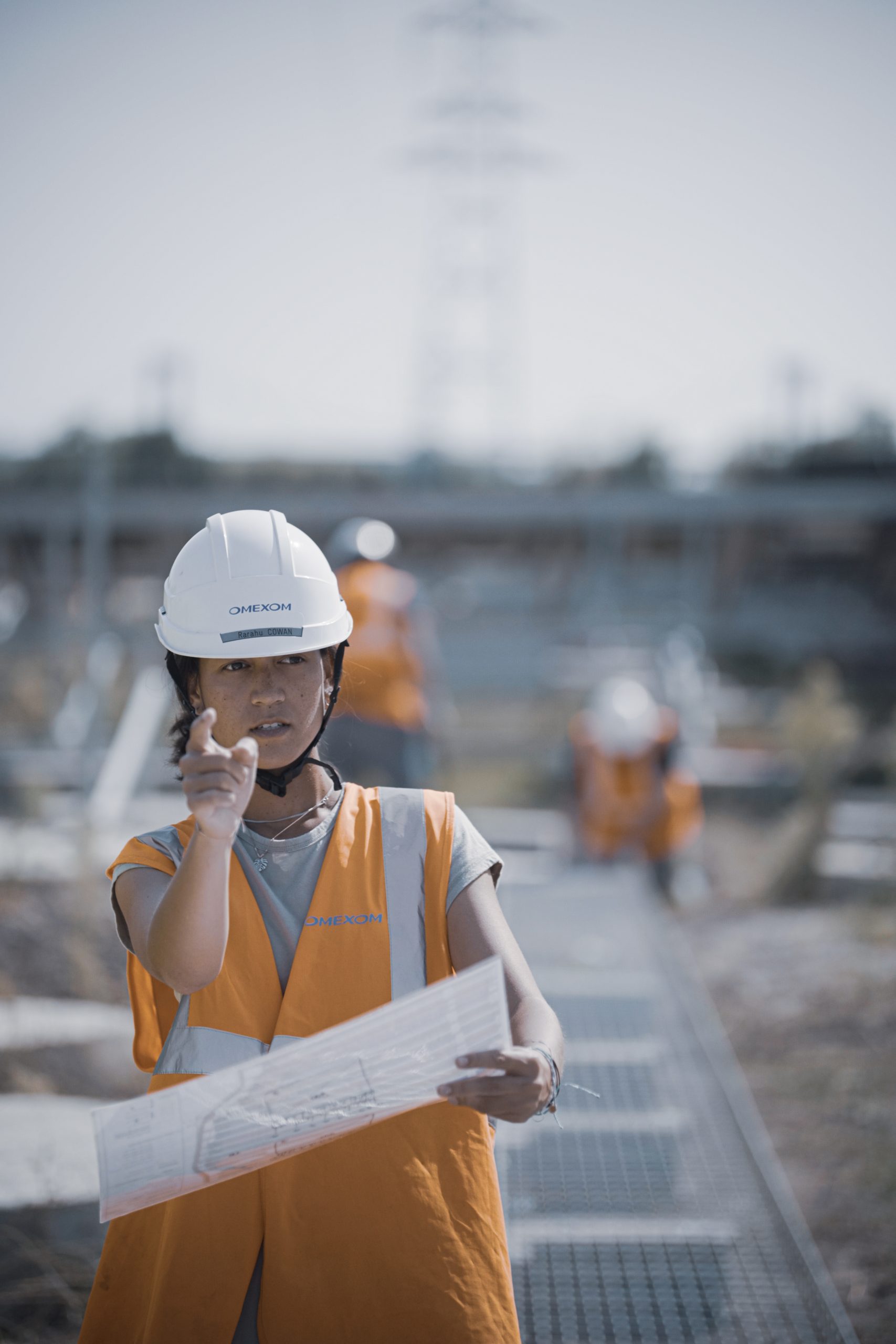Interview with Rarahu, a Business Engineer at Cegelec Polynésie – Omexom
Rarahu is a Business Engineer and loves her job, which places her at the forefront of the energy transition. In this interview she told us all the insider info about her work.
Why become a business engineer?
Rarahu: I discovered the profession during my first internship at Cegelec Polynésie (VINCI Energies). What I really liked about it was the varied tasks involved, as well as the ability to follow a project from start to finish – from the beginning of the bidding process through to construction.
I was interested in renewable energies and enjoyed my first professional experience at VINCI Energies, so I was looking for a position as an assistant project manager. That was partly because I wanted to learn the profession through sustainable projects, and partly because I wanted to continue studying civil engineering at INSA in Toulouse as part of a work‑study programme.
What does your job currently involve?
R: Right now I’m a business engineer at Omexom ENR SO, so my job involves carrying out photovoltaic power station construction projects. There are several steps to that:
1) Working with an engineering consultancy firm to identify all of the project’s specific technical aspects
2) Familiarising yourself with all of the contractual documents so you can draw up a schedule and budget
3) Preparing for the work (consulting with suppliers, making orders, approving technical fact sheets with the client, etc.)
4) And lastly, carrying out the project! To do so, you have to manage the teams on the ground and organise continuous meetings with the client to make sure that everyone keeps to schedule, invoicing is carried out properly, and the project is delivered on time.
During the project construction stage, reminding all workers on site – including myself! – that all work should be carried out in complete safety and to the highest quality is absolutely crucial. Above all, being a business engineer means supervising and ensuring everyone’s safety.
How does your job help you contribute to protecting the environment?
R: I build photovoltaic power stations that directly power local villages – which means I am taking part in the effort to make the French energy mix greener!
Which assignment or project has left the biggest impression on you, or is there a particular challenge that you would like to share with us?
R: All of the projects I have worked on stand out because they have all differed in some way. I worked on the Labarde solar power station, which is the largest of its kind in an urban area in Europe – the sheer size of the project, at 60 hectares, blew me away. I’m now working on a former uranium mine as part of a project in the Vendée region of France. Everyone who comes on site must follow a specific protocol and be kitted out with a sensor. These experiences continue to teach me a lot about my profession.

How do you see your career developing in the future?
R: I think I’ll still be in renewables, working as a project manager in my homeland – the island of Tahiti. I would specifically like to work on mixed-use projects that align with islands’ specific realities, such as photovoltaic electricity generation, solar heat hot water production, and energy storage.
What do you find most exciting in your job?
R: Photovoltaics is a relatively new market and there are still lots of areas of innovation to make it a more sustainable and efficient form of energy production. But what excites me most is the opportunity to take part in these assignments by receiving direct feedback on the ground, as well as the conversations and collaboration with inspection bodies, clients and suppliers.
Do you have any anecdotes to share about your work?
R: It’s actually sheep that tend to carry out upkeep at photovoltaic power stations by grazing, so I’ve had to fish them out of reservoirs twice now!
How would you quickly tell a young – or not so young – person why they should join VINCI Energies?
R: Want to take part in the environmental transition through innovative projects while developing your skills in business and personnel management? If so, join us at VINCI Energies!
Anything else to add?
R: In addition to doing an exciting job, at VINCI Energies we are able to give back to worthy causes. Throughout my training I have taken part in initiatives for Mécénat Chirurgie Cardiaque and participated in an operation by Trajeo’h [web page available in French only], an association set up by VINCI Group to help people with disabilities. VINCI Energies also strives to make operational professions more widely known among women, for example through working groups like the Hub au Féminin.

